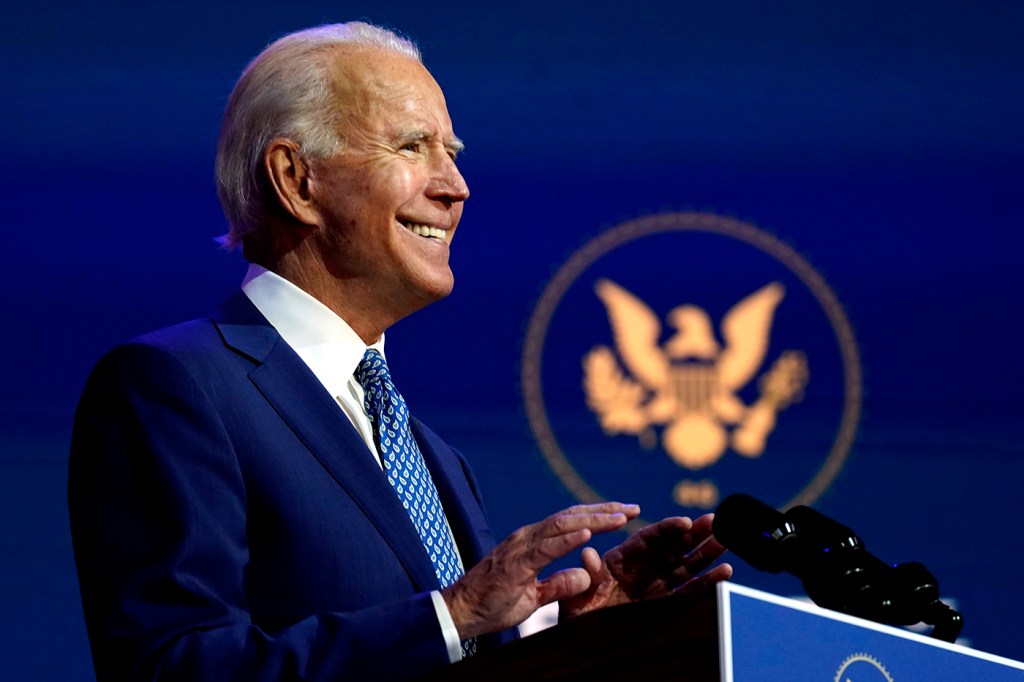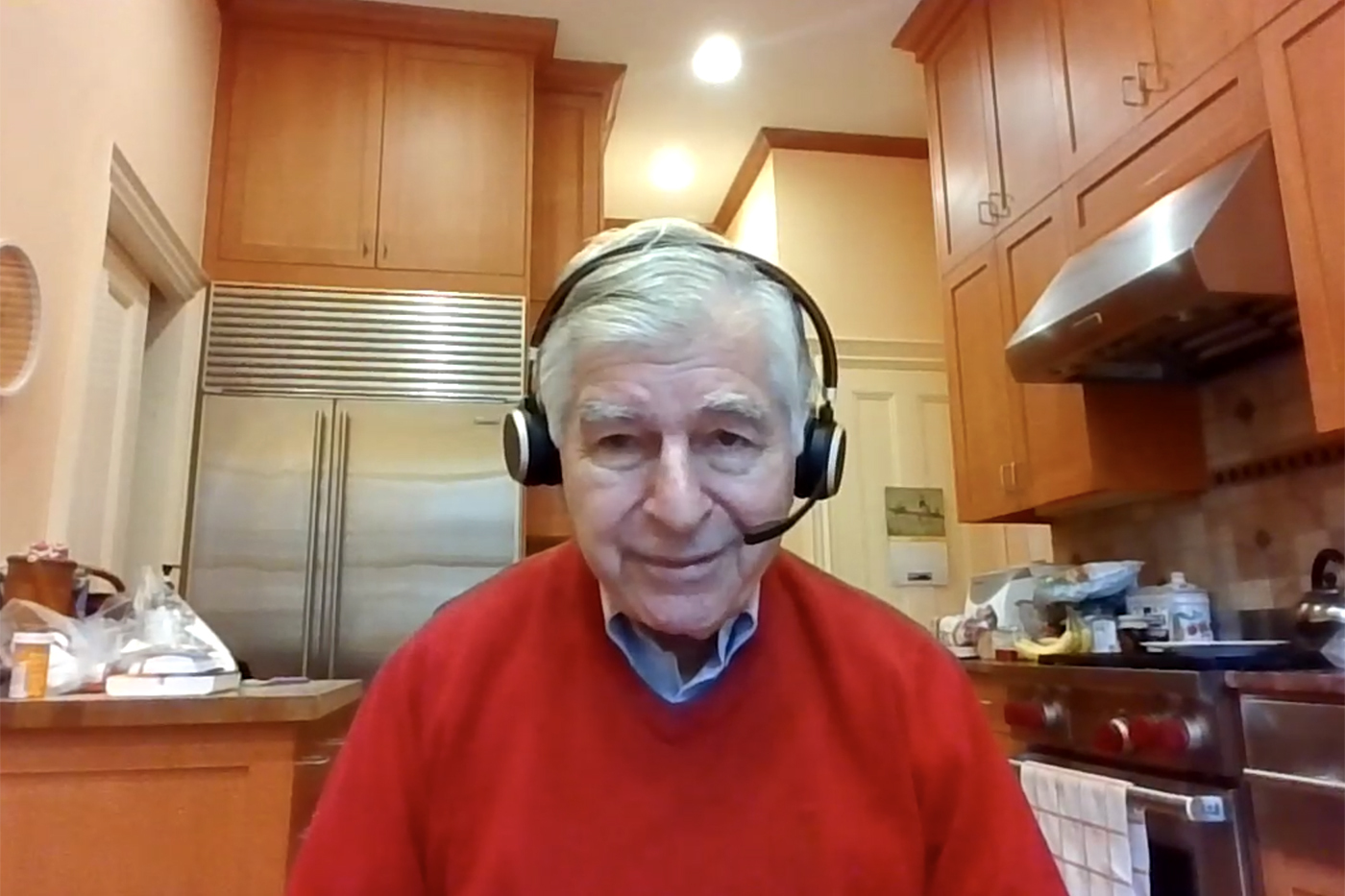Dukakis predicts Biden will surround himself with ‘excellent’ people to manage COVID-19

Former Massachusetts governor and Democratic presidential nominee Michael Dukakis said he is confident in President-elect Joe Biden’s ability to manage a surge in pandemic infections since Biden will surround himself with “excellent people who know what they’re doing.”
“You listen to them, then you try to provide the kind of tangible leadership that a good leader has to provide to mobilize resources, bring people together, and get them working together,” the distinguished professor emeritus of political science said in response to a question on a livestream discussion of the 2020 race.

Screenshot by Northeastern University
“I expect—in fact, I know—that Joe Biden and his people are already working on this thing,” the 1988 Democratic nominee said. “Unfortunately, we’ve lost a lot of time, but I think you’ll see an approach to how to manage this problem and get things done.”
Dukakis hailed the news of positive clinical trial results for Pfizer’s vaccine, and said it was especially important for older people like him and his wife, Kitty. Election Day on Nov. 3 was his 87th birthday, he said, and his wife turns 84 years old the day after Christmas.
“We have a very major stake in this, and obviously are looking forward to the day in the not-too-distant future when we can be vaccinated,” Dukakis said.
Dukakis held little back when asked about the state of the 2020 election. Biden, who has garnered more than 270 Electoral College votes, has already named a chief of staff and said he expects to name a few members of his Cabinet shortly. But President Donald Trump has refused to concede the race and is legally challenging the outcome in certain states.
“The way he’s conducting himself really is kind of strange,” said Dukakis, who lost the 1988 presidential race to then-Vice President George Bush, garnering 41 million votes to Bush’s more than 48 million.
“You’ve got to be a grown-up in this political business. You work as hard as you possibly can to win an election, but if you happen to lose—and I did once—you’ve got to handle it with maturity and with a certain amount of grace,” Dukakis said.
Still, Dukakis was critical of the Electoral College system, calling it a “product of a political compromise.” It’s absurd, he said, that the candidate who gets the most votes doesn’t necessarily become president, a situation that happened in the 2000 race between Al Gore and George W. Bush and the 2016 contest between Hillary Clinton and Trump.
“And now Joe Biden is well beyond the five million vote mark, and we’re still talking about whether or not he’s going to become president of the United States,” said Dukakis.
“We’re still futzing around with this thing at a time when the new administration should be hard at work putting the pieces together for the next four years at a time when we badly need that kind of leadership, given the serious public health problems we’re now dealing with,” he continued.
When asked about talk in Democratic circles of expanding the Supreme Court beyond nine justices to change its political makeup, Dukakis said flatly: “I’m very wary about court packing.”
Biden said during the campaign that he’s “not a fan” of adding Supreme Court justices, but would appoint a commission to study the national court system.
Dukakis noted that previous efforts to increase the size of the court have failed. And he said it’s hard to predict how justices will rule in certain cases, based solely on the political bent of the presidents who nominated them.
“Don’t judge these folks based on somebody’s estimate of who they are and what they’ll do philosophically,” said Dukakis. “Even some of Trump’s appointees are going to surprise us.”
For media inquiries, please contact media@northeastern.edu.





